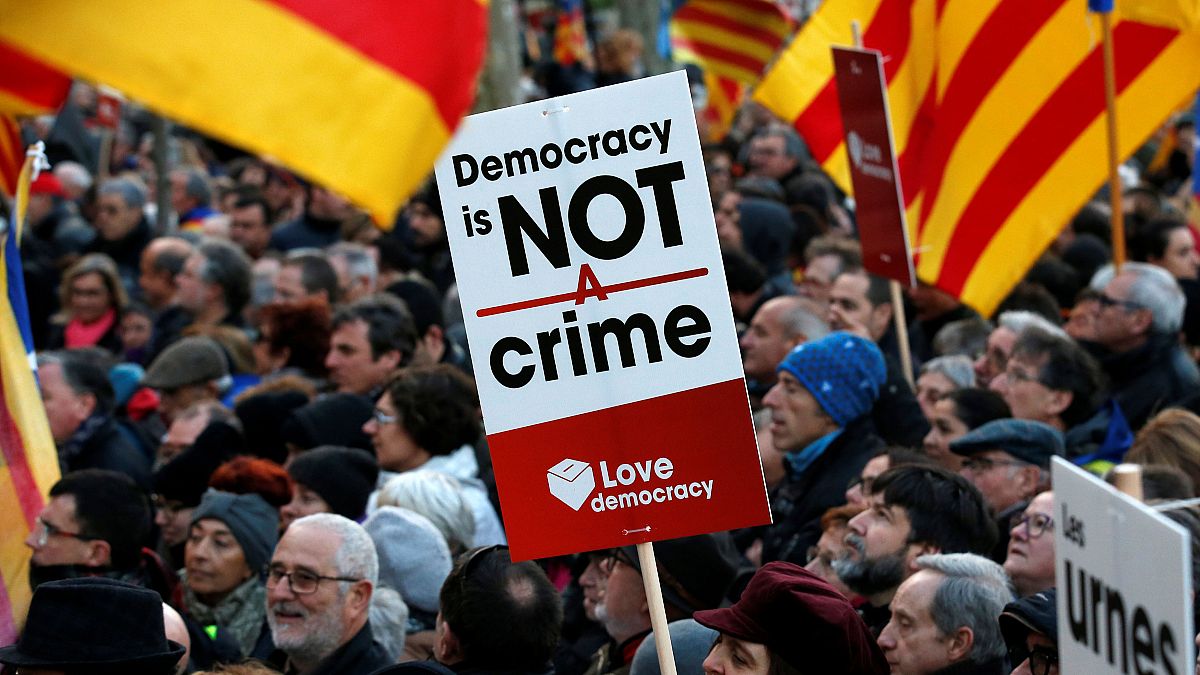In January 2016, Carles Puigdemont took over from Artur Mas to lead the regional government of Catalonia.
In January 2016, Carles Puigdemont took over from Artur Mas to lead the regional government of Catalonia.
The controversial Mas had stepped aside to end months of deadlock between his secessionist alliance and far-left lawmakers. It was a dramatic move, but the only way to secure the absolute majority needed in the regional parliament to try to steer Catalonia towards independence.
In December 2016, parties and unions supporting secession met in Barcelona. They agreed to hold a referendum on independence in September 2017.
“What unites us is the will to celebrate in Catalonia a referendum on what will be the relationship between Catalonia and Spain, and to do so in agreement with the Spanish State,” Puigdemont said.
While the Catalan leader did meet with Prime Minister Mariano Rajoy in Madrid, the Spanish government did not budge. As he had already told his predecessor Artur Mas, Rajoy told Puigdemont that such a referendum would be illegal, and thus void.
The Spanish Constitutional Court had indeed blocked the process and issued a warning to Puigdemont and the head of the Catalan parliament, Carme Forcadell. Forcadell is under investigation for having authorised the parliament to pass a series of resolutions easing the independence process.
The Catalan government meanwhile has said it would launch in July a new system allowing the collection of all taxes paid by Catalans, including those currently collected by the state.
Catalonia is home to 7.5 million people and one of the richest regions in Spain. With its own language and culture, it’s also home to a strong separatist movement.
An opinion poll in December showed that while 46.8 percent of Catalans opposed independence, 45.3 percent supported breaking away from the central government.
